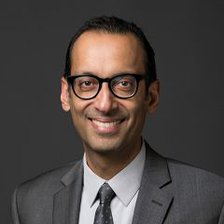
Professor Alnoor Ebrahim
Professor, The Fletcher School of Law and Diplomacy, Tufts University
Alnoor Ebrahim is a professor at The Fletcher School of Law and Diplomacy, Massachusetts. His current research addresses two core dilemmas of accountability facing social enterprises, nonprofit organisations, and public agencies: How should they measure and improve their performance? How should they address competing demands for accountability from diverse stakeholders? These questions are addressed in his new book, "Measuring Social Change: Performance & Accountability in a Complex World," (Stanford University Press, 2019).
He is also author of the award-winning book, "NGOs and Organizational Change: Discourse, Reporting, and Learning," and is co-editor of "Global Accountabilities: Participation, Pluralism, and Public Ethics," (both with Cambridge University Press). Professor Ebrahim presently serves on advisory boards to the Global Impact Investing Network and Acumen Fund on the topic of impact measurement, and he previously served on a working group established by the G8 to create global guidelines on social impact measurement.
Professor Ebrahim has also worked with the NGO Leaders Forum, an annual gathering of CEOs of the largest humanitarian development organizations based in the U.S. His previous research on accountability mechanisms within the World Bank led to a congressional testimony on improving the Bank’s information disclosure policy. Alnoor teaches courses on leadership and strategy, and also co-chairs an executive education program at the Harvard Kennedy School for the Schwab Foundation’s social entrepreneurs. Prior to joining The Fletcher School, he served on the faculty at Harvard Business School where he chaired two executive programs for social sector leaders, Harvard Kennedy School, and Virginia Tech. Professor Ebrahim received his doctorate and master’s degrees from Stanford University, and his bachelor of science from M.I.T.




